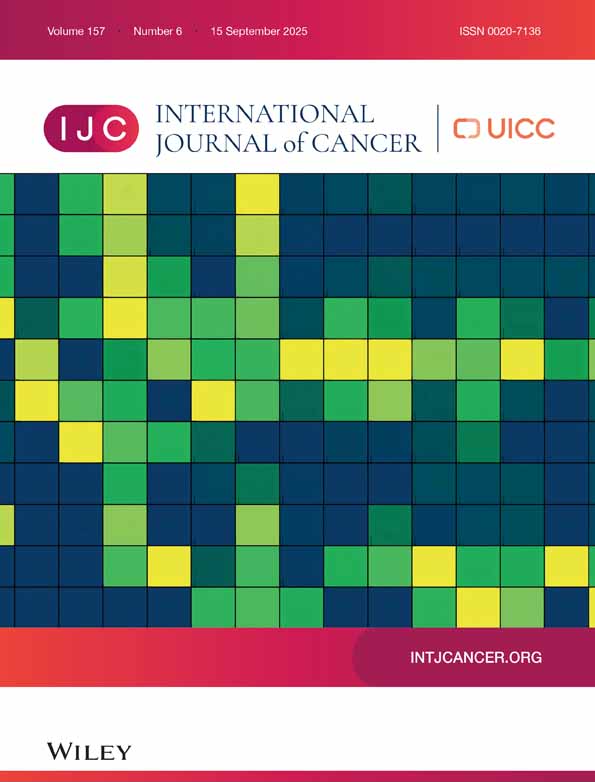Characterization and chromosomal assignment of a human cell surface antigen defined by the monoclonal antibody AUAI
Abstract
We describe the chromosomal assignment and biochemical characterization of the genetic locus controlled by a human cell surface antigen which is defined by the monoclonal antibody (MAb) AUAI. This gene product is only expressed on epithelial cells. Therefore, human-mouse somatic cell hybrids of epithelial origin were used to assign this gene to chromosome 2. Cell surface iodination of the hybrids and parental cells followed by immunoprecipitation and polyacrylamide gel electrophoresis showed that AUAI detected a single 35-kDa protein. The MAb AUAI reacted on tissue sections with a subset of normal epithelial cells, but in tumours it showed a much wider distribution, though still only on epithelium-derived tumours.




